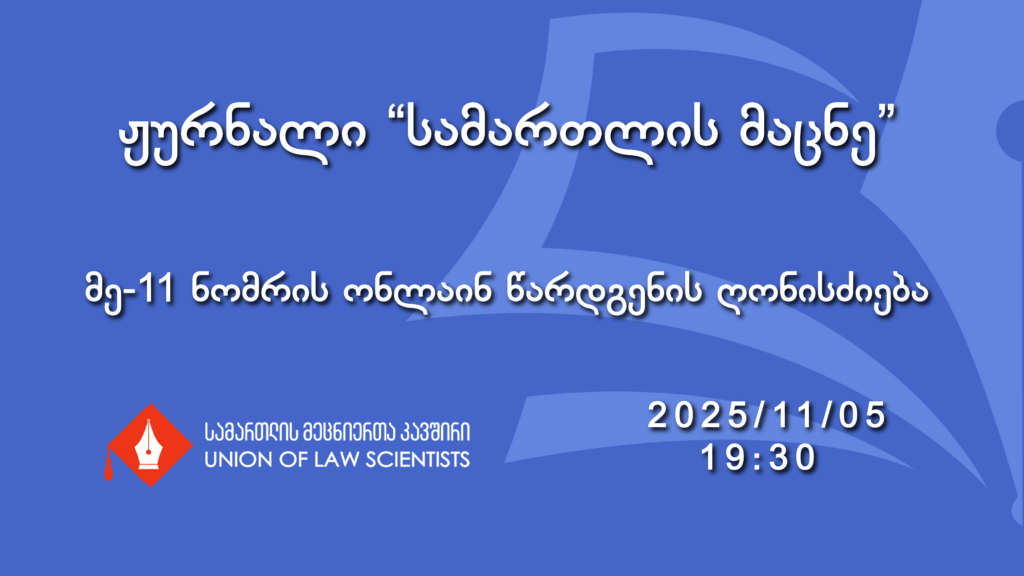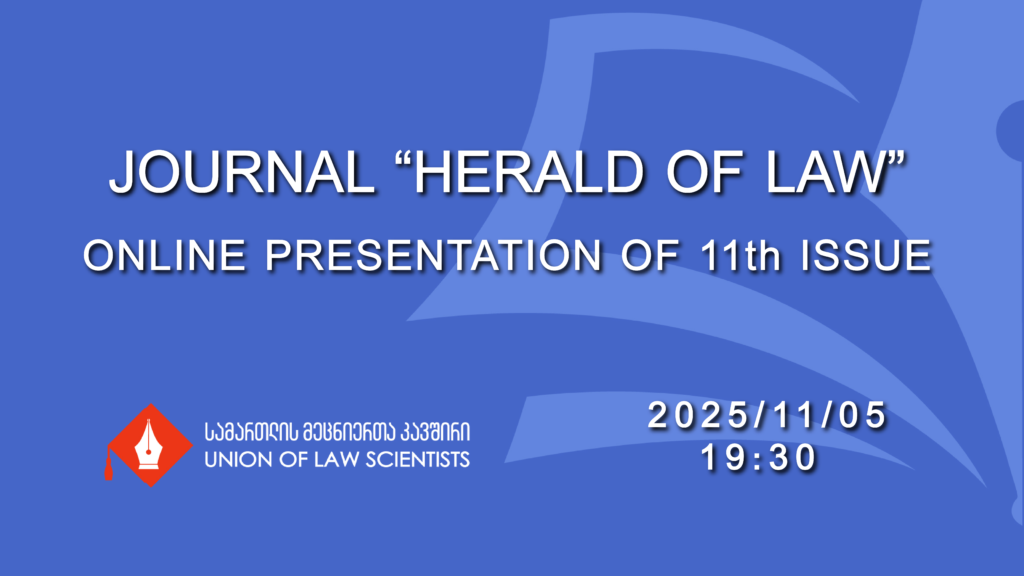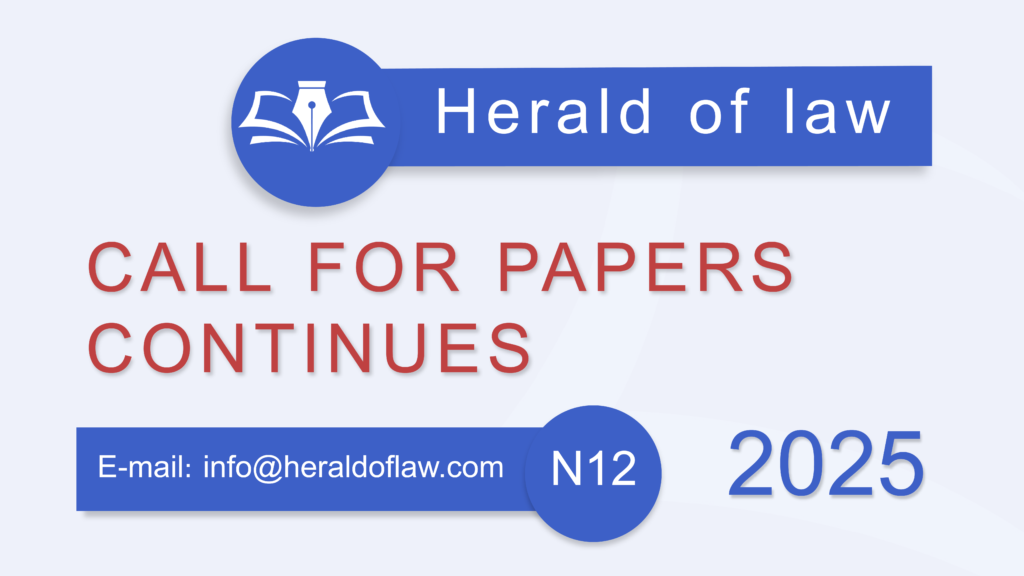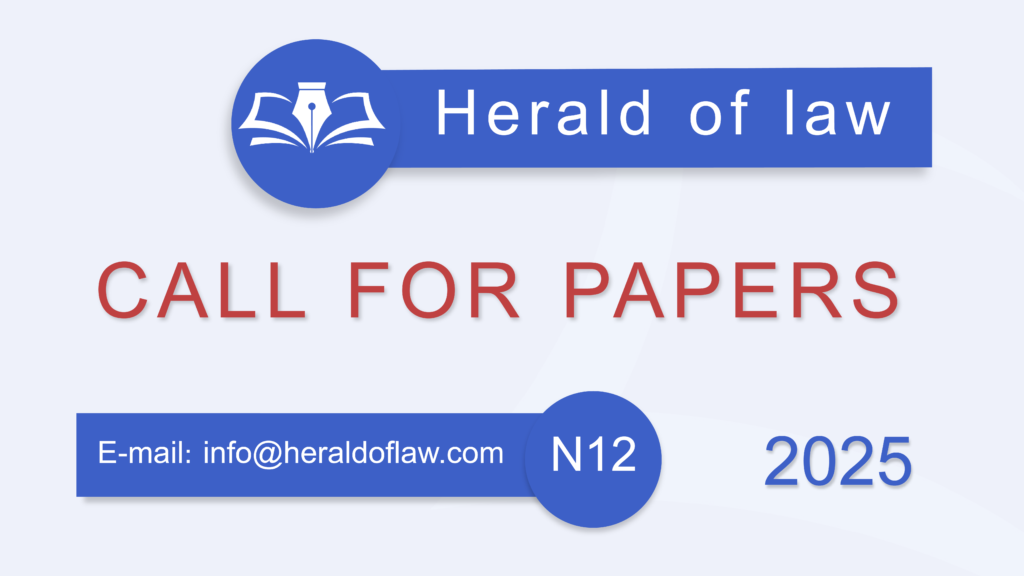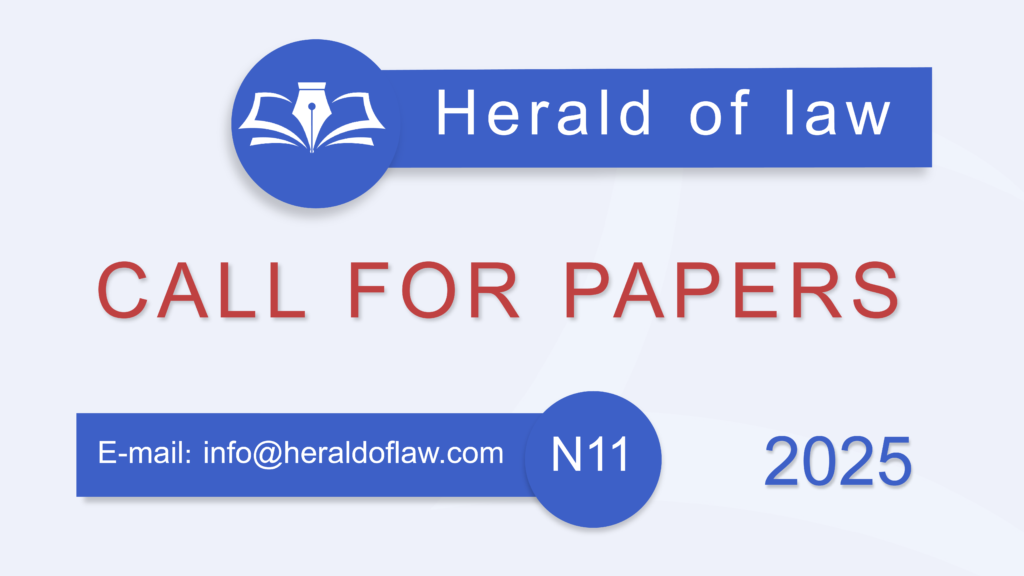Current Reform of the Electoral System in Georgia
Abstract:
The degree of democracy in elections and the actual exercise of the right to vote depends on a variety of factors, most notably on the formation of high electoral culture and qualified election administration in society. Fair election is of essential importance in the process of assessing the degree of democracy, which, in turn, includes the existence of a well-defined electoral system of the state. It should be noted that despite the efforts of the Georgian government to consolidate
democratic achievements, the current society is marked by a lack of strong political will and experience that are characteristics of democratic governance.
It should be noted that one of the important preconditions for the consolidation of democratic institutions is the strengthening of political parties and, in particular, the maintenance of a multi-party system. Citizens’ awareness of democracy and governance, modification of the governance system according to the circumstances and basing the legislation on the core values of democracy – freedom and political equality – are the main challenges of our state. Elections are the way in which a strong democratic governing body is created in a country if the elections are based on a flexible electoral system and the principles of universality, equality, freedom and secrecy are upheld.
It is important to note that the issue of choosing the optimal model of the electoral system is still being actively discussed in Georgian political and scientific circles. The aim of the presented research is to determine which electoral system is optimal for ensuring representative democracy in Georgia. The article also presents a comparative analysis of the Georgian electoral system with the electoral systems of different countries of the world and the formation of the legislature. The study discusses the theoretical assumptions about the outcome of the transition to a fully proportional system in Georgia, as
well as the impact of particular electoral system on the quality of representative democracy. The paper discusses both, national and international practices, especially the experience of Post-Soviet countries, and analyses relevant court decisions. As a conclusion, article proposes the relevant way of solving the problem of the electoral system.
Keywords:
Majoritarian, Proportional, Mixed electoral systems




